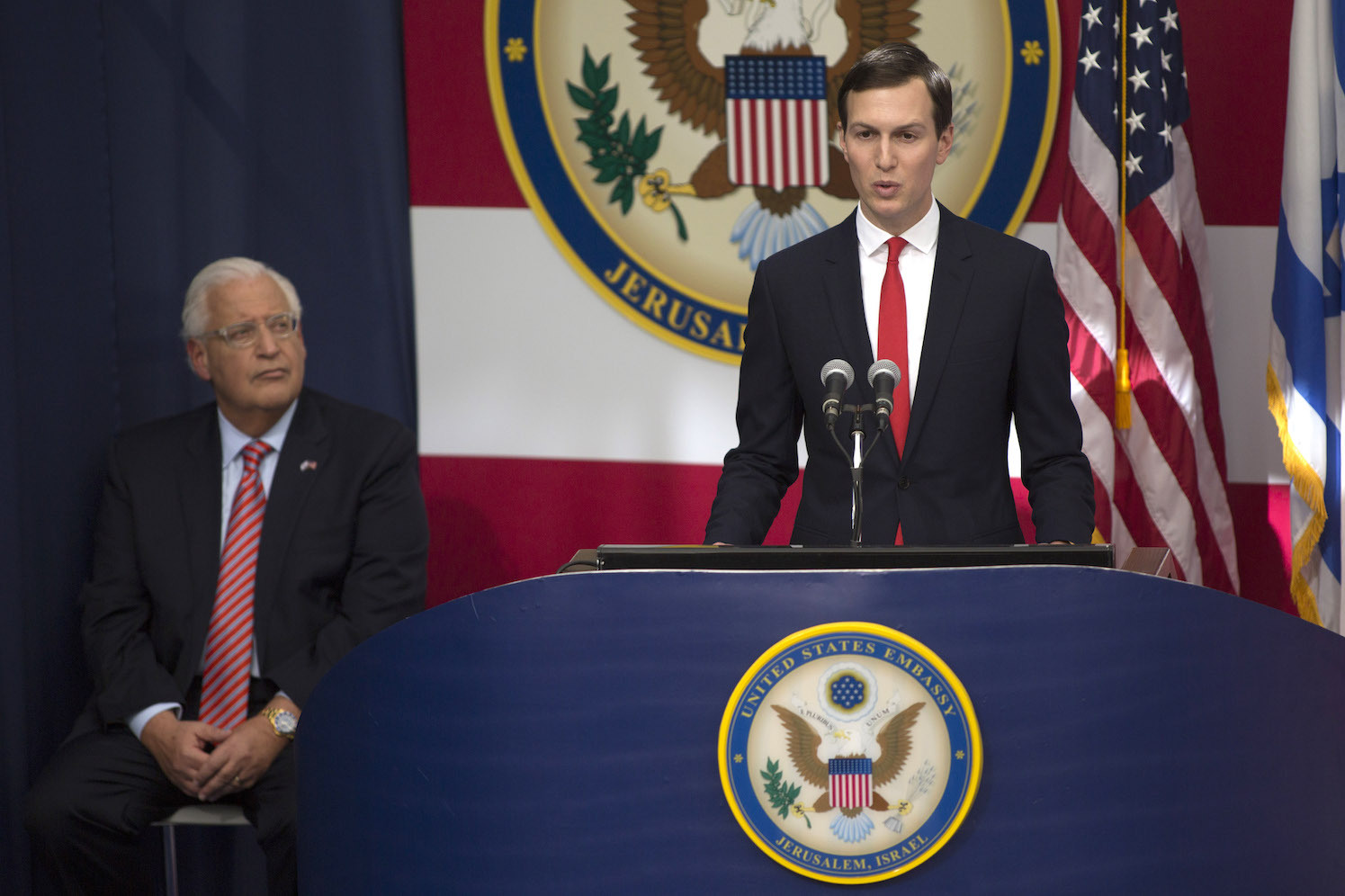[Startling development: After an orchestrated six month UNRWA campaign which proclaimed that US cutbacks had caused irreparable humanitarian crisis, UNRWA spokesman admits that at least five nations immediately replaced US cutbacks. Did Chris Gunness suddenly swallow truth serum?] –David Bedein
The White House is seeking to withhold up to $200 million in relief aid for Palestinian civilians in Gaza and the West Bank, severing a vital humanitarian lifeline at a time of rising political and security tensions in the area, according to three diplomatic sources.
The amount represents nearly all of the humanitarian aid the United States provides directly to the Palestinians. Washington also contributes to the budget of a United Nations agency that helps Palestinian refugees known as UNRWA, but the administration has slashed that aid and appears to have no immediate plans to provide more.
The decision coincides with a wave of pay cuts and layoffs for hundreds of U.N. and other international aid workers in the West Bank and Gaza—the latter of which is facing its most dire humanitarian crisis in years. Palestinian employees seized control of the U.N. Relief and Works Agency for Palestine Refugees in the Near East’s headquarters in Gaza last month after it announced the layoffs.
U.S. Secretary of State Mike Pompeo and Jared Kushner, President Donald Trump’s son-in-law and top Middle East advisor, decided on the cuts in a high-level meeting earlier this week.
Congress had already appropriated $230 million in economic support funds for private relief groups in Gaza, the West Bank, and East Jerusalem. But the officials decided they would ask lawmakers to withhold most of the funds, according to the diplomatic sources, who preferred not to be identified discussing sensitive issues.
A State Department spokesperson said “we have nothing to announce at this time.” A National Security Council spokesperson cautioned that “no decision has been made.”
The cut will affect scores of programs administered by nongovernmental charities in the West Bank and Gaza, including CARE, Catholic Relief Services, International Medical Corps, and Mercy Corps. The groups provide food, medical equipment, and services. It would also likely kill off key programs of the U.S. Agency for International Development.
The sources said the administration intends to continue funding a network of six hospitals in East Jerusalem, which receive over $25 million in annual U.S. contributions.
“It’s like a perfect storm of developments building toward the worst situation we have seen in decades in Gaza,” said Andy Dwonch, the mission director for Mercy Corps in Palestine, which has already had to give notice to 13 employees.
“What we really worry about is our ability to respond” to another major flare-up of violence.
Pompeo initially opposed the sweeping cuts, arguing that it would be better to redirect U.S. funding to other international relief efforts. But Kushner pushed back, maintaining that ending the assistance outright could strengthen his negotiating hand when he introduces his long-awaited Middle East peace plan, according to sources.
The U.S. executive branch is required by law to spend money appropriated by Congress. But one method under consideration to get around the law is to put the money in a “rescission package” and tell Congress it doesn’t need to spend it.
Under Congress’s procedural rules, legislators would have 45 days to decide to back the administration’s request. But in this case, even if they make no decision, the expiration would coincide with the end of the fiscal year, at which point the money could no longer be spent.
“This is counterproductive,” Dave Harden, a former USAID mission director for the West Bank and Gaza, said of the aid cuts. “We are leaving a political vacuum and ceding the space to Hamas and other rejectionists.”
Earlier this year, the Trump administration cut funding for the U.N. Relief and Works Agency, or UNRWA, which provides essential food and services to more than 5 million Palestinian refugees across the Middle East—transferring to the agency less than half of its initial annual installment $125 million.
At the time, the State Department announced it intended to conduct a review of the U.S. funding for UNRWA, claiming UNRWA needed to demonstrate a willingness to undertake unspecified reforms.
But internal White House emails disclosed last Friday by Foreign Policy suggested that Kushner and other White House officials were exploring ways to dismantle UNRWA. In one of the emails, Kushner described the U.N. agency as “corrupt, inefficient and doesn’t help peace.”
The Trump administration wants other governments, particularly wealthy Gulf Arab states, to help cover UNRWA’s costs.
UNRWA’s spokesman, Chris Gunness, told FP that many other states have taken up some of the slack, noting that an “unprecedented” $200 million in new funds have been committed to the U.N. refugee program since January, including $100 million from Saudi Arabia and the United Arab Emirates. Another $38 million has been pledged by Belgium, Cyprus, Denmark, the Holy See, Ireland, Malta, the United Kingdom, and the European Union. But UNRWA continues to have a shortfall of $217 million, he said.









